James Madison (March 16, 1751 – June 28, 1836) was an American statesman, diplomat, and Founding Father who served as the fourth president of the United States from 1809 to 1817. Madison was popularly acclaimed the "Father of the Constitution" for his pivotal role in drafting and promoting the Constitution of the United States and the Bill of Rights.
Madison was born into a prominent slave-owning planter family in Virginia. He served as a member of the Virginia House of Delegates and the Continental Congress during and after the American Revolutionary War. Dissatisfied with the weak national government established by the Articles of Confederation, he helped organize the Constitutional Convention, which produced a new constitution designed to strengthen republican government against democratic assembly. Madison's Virginia Plan was the basis for the convention's deliberations, and he was an influential voice at the convention. He became one of the leaders in the movement to ratify the Constitution and joined Alexander Hamilton and John Jay in writing The Federalist Papers, a series of pro-ratification essays that remains prominent among works of political science in American history. Madison emerged as an important leader in the House of Representatives and was a close adviser to President George Washington.
During the early 1790s, Madison opposed the economic program and the accompanying centralization of power favored by Secretary of the Treasury Hamilton. Alongside Thomas Jefferson, he organized the Democratic–Republican Party in opposition to Hamilton's Federalist Party. After Jefferson was elected president in 1800, Madison served as his Secretary of State from 1801 to 1809 and supported Jefferson in the case of Marbury v. Madison. While Madison was Secretary of State, Jefferson made the Louisiana Purchase, and later, as President, Madison oversaw related disputes in the Northwest Territories.
Madison was elected president in 1808. Motivated by desire to acquire land held by Britain, Spain, and Native Americans, and after diplomatic protests with a trade embargo failed to end British seizures of American shipped goods, Madison led the United States into the War of 1812. Although the war ended inconclusively, many Americans viewed the war's outcome as a successful "second war of independence" against Britain. Madison was re-elected in 1812, albeit by a smaller margin. The war convinced Madison of the necessity of a stronger federal government. He presided over the creation of the Second Bank of the United States and the enactment of the protective Tariff of 1816. By treaty or through war, Native American tribes ceded 26,000,000 acres of land to the United States under Madison's presidency.
Retiring from public office at the end of his presidency in 1817, Madison returned to his plantation, Montpelier, and died there in 1836. During his lifetime, Madison was a slave owner. In 1783, to prevent a slave rebellion at Montpelier, Madison freed one of his slaves. He did not free any slaves in his will. Among historians, Madison is considered one of the most important Founding Fathers of the United States. Leading historians have generally ranked him as an above-average president, although they are critical of his endorsement of slavery and his leadership during the War of 1812. Madison's name is commemorated in many landmarks across the nation, both publicly and privately, with prominent examples including Madison Square Garden, James Madison University, the James Madison Memorial Building, and the USS James Madison.
James Madison Jr. was born on March 16, 1751 (March 5, 1750, Old Style), at Belle Grove Plantation near Port Conway in the Colony of Virginia, to James Madison Sr. and Eleanor Madison. His family had lived in Virginia since the mid-17th century. Madison's maternal grandfather, Francis Conway, was a prominent planter and tobacco merchant. His father was a tobacco planter who grew up on a plantation, then called Mount Pleasant, which he inherited upon reaching adulthood. With an estimated 100 slaves and a 5,000-acre plantation, Madison's father was among the largest landowners in Virginia's Piedmont.
In the early 1760s, the Madison family moved into a newly built house that they named Montpelier. Madison grew up as the oldest of twelve children, with seven brothers and four sisters, though only six lived to adulthood. Of the surviving three brothers (Francis, Ambrose, and William) and three sisters (Nelly, Sarah, and Frances), it was Ambrose who would eventually help to manage Montpelier for both his father and older brother until his own death in 1793. President Zachary Taylor was a descendant of Elder William Brewster, a Pilgrim leader of the Plymouth Colony, a Mayflower immigrant, and a signer of the Mayflower Compact; and Isaac Allerton Jr., a colonial merchant, colonel, and son of Mayflower Pilgrim Isaac Allerton and Fear Brewster. Taylor's second cousin through that line was Madison.
On September 15, 1794, Madison married Dolley Payne Todd, the 26-year-old widow of John Todd, a Quaker farmer who died during a yellow fever epidemic in Philadelphia. Earlier that year, Madison and Dolley Todd had been formally introduced at Madison's request by Aaron Burr. Burr had become friends with her when staying at the same Philadelphia boardinghouse. After an arranged meeting in early 1794, the two quickly became romantically engaged and prepared for a wedding that summer, but Todd suffered recurring illnesses because of her exposure to yellow fever in Philadelphia. They eventually traveled to Harewood in Virginia for their wedding. Only a few close family members attended, and Winchester reverend Alexander Balmain presided. Dolley became a renowned figure in Washington, D.C., and excelled at hosting dinners and other important political occasions. She subsequently helped to establish the modern image of the first lady of the United States as an individual who has a leading role in the social affairs of the nation.
Madison's health slowly deteriorated through the early-to-mid-1830s. Approaching the Fourth of July, he died of congestive heart failure at Montpelier on the morning of June 28, 1836, at the age of 85.
If you want to read a whole lot more, go here: https://en.wikipedia.org/wiki/James_Madison
- SERVES
- 8
- COOK TIME
- 20 Min
Between the freshness of the lemon, the snap of the asparagus, and the richness from the butter, it's hard to say what you'll love best about our Lemon Chive Asparagus. This healthy and elegant side dish is a must-make - especially in the spring!
- 1 cup water
- 1/2 teaspoon salt
- 1 1/2 pound fresh asparagus, trimmed
- 1/4 cup (1/2 stick) butter
- 1 teaspoon grated lemon peel
- 2 tablespoons fresh lemon juice
- 2 tablespoons chopped fresh chives (see Note)
- In a large skillet over high heat, bring water and salt to a boil.
- Add asparagus; reduce heat to low, cover, and simmer 4 to 5 minutes, or until asparagus is tender. Drain and arrange on a serving platter.
- In the same skillet over medium-high, melt butter. Stir in remaining ingredients; mix well then pour over asparagus. Serve immediately.





(c).jpg)

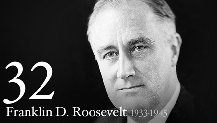
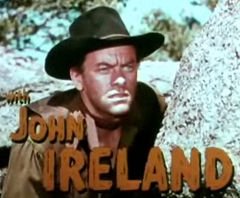

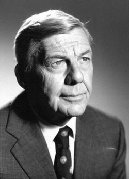

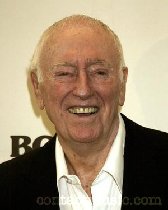
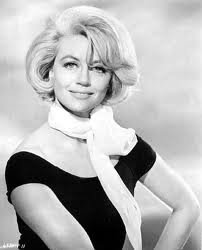

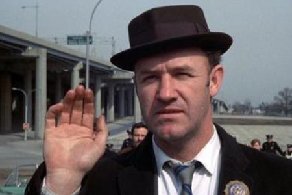



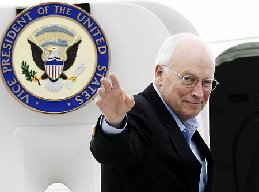

No comments:
Post a Comment